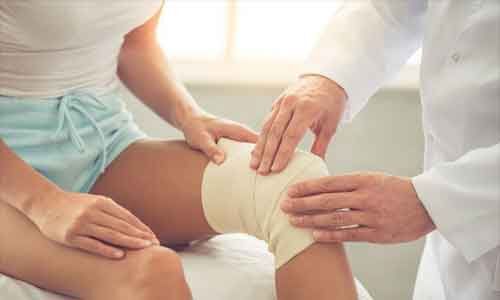- Home
- Medical news & Guidelines
- Anesthesiology
- Cardiology and CTVS
- Critical Care
- Dentistry
- Dermatology
- Diabetes and Endocrinology
- ENT
- Gastroenterology
- Medicine
- Nephrology
- Neurology
- Obstretics-Gynaecology
- Oncology
- Ophthalmology
- Orthopaedics
- Pediatrics-Neonatology
- Psychiatry
- Pulmonology
- Radiology
- Surgery
- Urology
- Laboratory Medicine
- Diet
- Nursing
- Paramedical
- Physiotherapy
- Health news
- Fact Check
- Bone Health Fact Check
- Brain Health Fact Check
- Cancer Related Fact Check
- Child Care Fact Check
- Dental and oral health fact check
- Diabetes and metabolic health fact check
- Diet and Nutrition Fact Check
- Eye and ENT Care Fact Check
- Fitness fact check
- Gut health fact check
- Heart health fact check
- Kidney health fact check
- Medical education fact check
- Men's health fact check
- Respiratory fact check
- Skin and hair care fact check
- Vaccine and Immunization fact check
- Women's health fact check
- AYUSH
- State News
- Andaman and Nicobar Islands
- Andhra Pradesh
- Arunachal Pradesh
- Assam
- Bihar
- Chandigarh
- Chattisgarh
- Dadra and Nagar Haveli
- Daman and Diu
- Delhi
- Goa
- Gujarat
- Haryana
- Himachal Pradesh
- Jammu & Kashmir
- Jharkhand
- Karnataka
- Kerala
- Ladakh
- Lakshadweep
- Madhya Pradesh
- Maharashtra
- Manipur
- Meghalaya
- Mizoram
- Nagaland
- Odisha
- Puducherry
- Punjab
- Rajasthan
- Sikkim
- Tamil Nadu
- Telangana
- Tripura
- Uttar Pradesh
- Uttrakhand
- West Bengal
- Medical Education
- Industry
Aspirin versus enoxaparin use tied to higher VTE rates in patients undergoing hip or knee surgery: JAMA

USA: Aspirin given to patients undergoing hip or knee arthroplasty for osteoarthritis resulted in a significantly higher rate of symptomatic venous thromboembolism (VTE) compared to enoxaparin, says a recent study published in the Journal of the American Medical Association (JAMA).
Symptomatic venous thromboembolism (VTE) occurs in approximately 2% of patients following hip and knee arthroplasty procedures even with strategies for VTE prevention. There has been an increased use of aspirin-based therapies for thromboprophylaxis between 2010 and 2021 due to their perceived safety, low cost, and ease of administration. However, there is a lack of randomized trials examining aspirin monotherapy for symptomatic VTE prophylaxis after total hip arthroplasty (THA) or total knee arthroplasty (TKA).
To fill the knowledge gap described above, the authors aimed to determine whether aspirin was noninferior to enoxaparin in preventing symptomatic VTE after THA or TKA in a cluster-randomized, crossover, registry-nested trial-- CRISTAL.
The trial was conducted across 31 hospitals in Australia. Clusters were hospitals performing greater than 250 THA or TKA procedures annually. Each hospital enrolled patients (aged ≥18 years) undergoing hip or knee arthroplasty procedures. Those receiving preoperative anticoagulation or who had a medical contraindication to either study drug were excluded.
Between April 20, 2019, and December 18, 2020, a total of 9711 eligible patients were enrolled (5675 in the aspirin group and 4036 in the enoxaparin group).
Hospitals were randomized to administer aspirin (100 mg/d) or enoxaparin (40 mg/d) for 35 days after THA and for 14 days after TKA. After the patient enrollment target had been met for the first group, crossover occurred. All 31 hospitals were initially randomized and 16 crossed over before trial cessation.
Symptomatic VTE within 90 days, including pulmonary embolism and deep venous thrombosis (DVT) (above or below the knee), were the primary outcome. Death and major bleeding within 90 days were the main out of the six secondary outcomes reported.
The study revealed the following findings:
- Enrollment was stopped after an interim analysis determined the stopping rule was met, with 9711 patients (median age, 68 years; 56.8% female) of the prespecified 15 562 enrolled (62%). Of these, 9203 (95%) completed the trial.
- Within 90 days of surgery, symptomatic VTE occurred in 256 patients, including pulmonary embolism (79 cases), above-knee DVT (18 cases), and below-knee DVT (174 cases).
- The symptomatic VTE rate in the aspirin group was 3.45% and in the enoxaparin group was 1.82%. This failed to meet the criterion for noninferiority for aspirin and was significantly superior for enoxaparin.
- Of 6 secondary outcomes, none were significantly better in the enoxaparin group compared with the aspirin group.
"Aspirin compared with enoxaparin resulted in a significantly higher rate of symptomatic VTE within 90 days, defined as below- or above-knee DVT or pulmonary embolism among patients undergoing hip or knee arthroplasty for osteoarthritis," the researchers wrote in their study. "These findings may be informed by a cost-effectiveness analysis."
Reference:
CRISTAL Study Group. Effect of Aspirin vs Enoxaparin on Symptomatic Venous Thromboembolism in Patients Undergoing Hip or Knee Arthroplasty: The CRISTAL Randomized Trial. JAMA. 2022;328(8):719–727. doi:10.1001/jama.2022.13416
Dr Kamal Kant Kohli-MBBS, DTCD- a chest specialist with more than 30 years of practice and a flair for writing clinical articles, Dr Kamal Kant Kohli joined Medical Dialogues as a Chief Editor of Medical News. Besides writing articles, as an editor, he proofreads and verifies all the medical content published on Medical Dialogues including those coming from journals, studies,medical conferences,guidelines etc. Email: drkohli@medicaldialogues.in. Contact no. 011-43720751


